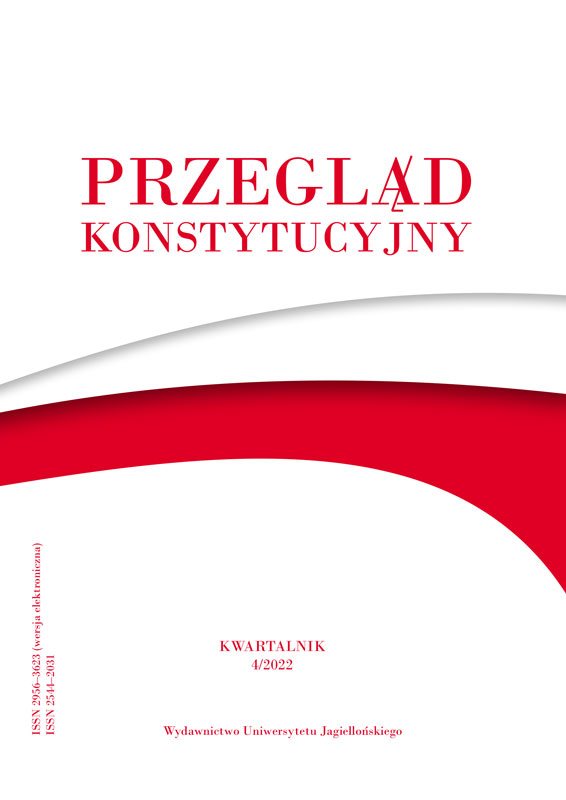Prawo do sądu ustanowionego ustawą a orzekanie przez sędziów sądów powszechnych powołanych na wniosek Krajowej Rady Sądownictwa po 6 marca 2018 r.
Right to a Tribunal Established by Law and the Adjudication by Judges of Common Courts Appointed at the Request of the National Judicial Council after 6 March 2018
Author(s): Marcin SzwedSubject(s): Law, Constitution, Jurisprudence, Constitutional Law, Administrative Law
Published by: Wydawnictwo Uniwersytetu Jagiellońskiego
Keywords: right to court; Article 6 ECHR; judicial independence; tribunal established by law; judicial appointments
Summary/Abstract: The purpose of the article is to discuss the problem of common courts adjudicating in panels with judges appointed at the request of the National Council of the Judiciary after 6 March 2018 from the perspective of the right to a tribunal established by law guaranteed by Article 6(1) of the ECHR. In particular, the research problem of the article is to determine whether adjudication by a common court in panels involving such persons always leads to a violation of Article 6(1) ECHR. The article presents the view that the appointment of common court judges at the request of the reorganised NCJ, possibly with exception to assessors and former assessors appointed to their first judicial positions, constitutes manifest violation of fundamental rules of appointment of judges. This position is supported by the previous ECtHR case law, according to which adjudication by defectively appointed Supreme Court judges led to violation of the right to a tribunal established by law. However, the mere fact that a common court judge has been appointed in manifest violation of domestic law does not mean that the issuance of a ruling by such judge must always lead to a violation of Article 6(1) ECHR. In the process of assessment of whether there has been a violation of the Convention, the ECtHR also takes into account whether the national courts have adequately reviewed and remedied the violations of law that occurred at the stage of judicial appointments. The article presents the view that if a domestic court undertakes a comprehensive assessment of the judicial appointment process and then concludes, relying on the values expressed in the ECHR and in the case law of the ECtHR, that despite participation of unlawfully appointed person in adjudication panel an individual’s right to court was not put at risk, a violation of Article 6 ECHR can be avoided. If, however, the issue of the judge’s appointment is not examined at all or is done so only superficially, there will be a breach of the ECHR.
Journal: Przegląd Konstytucyjny
- Issue Year: 24/2022
- Issue No: 4
- Page Range: 95-123
- Page Count: 29
- Language: Polish

